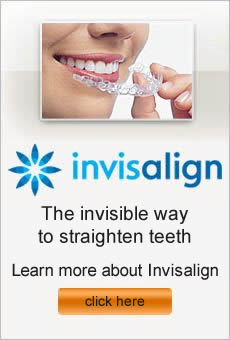Braces can straighten teeth and transform your smile. After orthodontic treatment, however, patients need to wear their retainers to stop teeth from shifting out of place. Forgetting to wear that retainer may result in movement and the potential need for more therapy. A spring retainer can help correct the position of your teeth, saving the hassle and expense of additional time in braces.
Made of a wire and acrylic frame, the spring retainer extends from cuspid to cuspid and forces the front teeth back into place. Spring retainers work well at fixing the shift that results when patients haven’t worn their original retainers as directed by their orthodontist. Even adults who stopped wearing their retainers years ago may benefit from therapy with a spring retainer.
Though spring retainers can cause movement, these oral appliances aren’t miracle workers. Ideally, a spring retainer will move your teeth one to two mm and should only be used for minor adjustments. Spring retainers won’t work for root or jaw movement, and these devices don’t help severely crooked teeth. Usually, spring retainers focus on the four front teeth, but they can be adjusted to encompass more of your smile.
Treatment time with a spring retainer only lasts about six months. Once the teeth have moved back into place, you will need to wear the spring retainer at night for a certain period of time to preserve the desired results. To determine if you could benefit from use of a spring retainer, contact Mehdi Fotovat, DDS in Sherman Oaks, CA. After a thorough exam, the orthodontist can make a detailed recommendation for treatment.
Mehdi Fotovat, DDS. Sherman Oaks California orthodontics – creating beautiful, straight smiles!
If you are thinking about bringing your child in for an evaluation or you are considering adult treatment, you will want to have at least a cursory knowledge of orthodontics. These questions and answers will get you started. After a complete evaluation, your orthodontist will explain the findings, review the treatment plan, and answer any questions.
Is there a difference between a dentist and orthodontist?
Yes. An orthodontist is a dentist that has completed an additional two to three years of advanced education in orthodontics, the branch of dentistry dealing with the diagnosis, prevention, and treatment of dental and facial irregularities.
What causes orthodontic issues?
Malocclusions, or bad bites, can be genetic or acquired. Often, people inherit problems such as crowding, extra space, or additional teeth. Trauma, thumb sucking, dental disease, and other factors can contribute to acquired malocclusions.
Why does it matter if I have orthodontic treatment?
Not only will straighter teeth look better, but they will also improve your oral health. Crooked teeth are harder to clean, which increases the chances of developing tooth decay.
How long does orthodontic treatment take?
Although most people usually wear braces for 12 to 24 months, the definitive answer depends on the individual case. Another factor that influences treatment time is cooperation. If you don’t listen to your orthodontist, the braces will stay on longer.
I am an adult. Are there other options besides metal braces?
In the past, metal braces were the only choice for orthodontic treatment. Now, adult patients can consider clear braces and Invisalign aligners to achieve flawless smiles and still maintain their polished appearances.
Consider our Orthodontic team in Sherman Oaks California – Dr. Fotovat – Burbank Orthodontist – WebBraces.com
While having braces may not seem like a ball of fun, it doesn’t have to create a negative affect on your life. Most people visit their orthodontist every six to eight weeks, finish treatment, and enjoy gorgeous smiles. Sometimes, orthodontic care doesn’t go as planned and you made need to contact the orthodontist for special circumstances. These tips can help you stay calm and handle the situation like a pro.
Know Your Appliance
Understanding the limitations of your braces or retainer can stop you from damaging these devices. With braces, staying away from crunchy or sticky foods can prevent breakage. When you have a retainer, wear the appliance as directed and leave it in the case when not in use.
Assess the need
If you run into a problem, determine how serious the issue is before you act. Call your orthodontist during business hours if something breaks, comes loose, or gets lost. Immediately contact the office when a broken appliance prevents you from opening or closing your mouth, or if you have pain even after taking over-the-counter pain relievers.
Be prepared
Because brackets or wires can break, keep orthodontic wax on hand to protect the area until you can get in to see your orthodontist.
Take precautions
During your time in braces, ask your orthodontist about a mouth guard if you play sports. Also, don’t mess with your brackets or wires because you can accidentally cause problems with the dental appliance.
We care about your smile at our Sherman Oaks, CA orthodontic office – Mehdi Fotovat, DDS.
While wearing braces can give you a stunning smile, most people don’t look forward to the process. Though the end result might be worth it, braces aren’t a lot of fun. These tips will help you get through your orthodontic treatment like a champ.
Get the facts
Find a good orthodontist and have a full evaluation so that you can discover exactly what kind of treatment you need. Don’t be afraid to ask for clarification or get more information if something is unclear.
Review your options
Though many kids and teens still wear traditional braces, other orthodontic options exist for adult and older teen patients such as self-ligating brackets, clear brackets, and Invisalign clear aligners.
Follow directions
Your treatment time will progress on schedule if you wear rubber bands, keep appointments, and completely listen to the orthodontist’s instructions. On the flip slide, you may have to wear the braces even longer if you don’t comply with what the orthodontist says.
Focus on the goal
Remember that your time in braces is temporary and has a definite purpose. After treatment, you will achieve a stunning smile that will provide years of enjoyment. Those one or two years in braces will seem like no time at all.
We care about your smile at our Sherman Oaks, CA orthodontic office – Mehdi Fotovat, DDS.
Often, people decide to seek orthodontic treatment because they want straighter teeth. Usually, your teeth are out of alignment because of a malocclusion, or bad bite. Several different bite issues exist that may cause you to need orthodontic treatment. Your orthodontist will examine your entire mouth and recommend the best course of treatment to give you a straight, healthy smile.
Types of malocclusions include:
Crowding
When you don’t have enough room in your mouth to accommodate your teeth, crowding occurs. Not only do crowded teeth look less attractive, but they also compromise your oral health by making it harder to brush and floss.
Overbites
Also called a deep bite, an overbite is a situation where the front teeth dramatically cover the lower teeth. Without treatment, an overbite can lead to excessive tooth wear.
Underbites
Caused when the lower jaw is longer than the upper jaw, an underbite makes the bottom teeth protrude in front of the top teeth.
Extra Space
If teeth are small or missing, you can end up with too much space. Though this issue is often cosmetic, you should have extra space evaluated by an orthodontist.
Open bite
Usually caused by a habit such as tongue thrusting or thumb sucking, an open bite is when an individual can stick his or her tongue between the teeth while biting down.
Protruding Teeth
Sometimes, the upper teeth come too far forward or the lower teeth don’t stick out far enough, which is called protruding teeth.
It’s time to schedule a visit to our Sherman Oaks, CA orthodontic office – Mehdi Fotovat, DDS.



